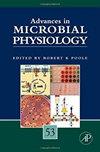应激诱导的细菌适应性形态发生。
2区 生物学
Q1 Biochemistry, Genetics and Molecular Biology
Advances in Microbial Physiology
Pub Date : 2019-01-01
Epub Date: 2019-03-04
DOI:10.1016/bs.ampbs.2019.02.001
引用次数: 31
摘要
细菌几乎在所有环境中都能茁壮成长。像所有其他生物体一样,细菌可能会遇到各种类型的压力,细胞需要适应这些压力。在本章中,我们将描述细胞如何应对应激条件,以及这可能导致的剧烈形态变化。这些变化不仅可以使无害细胞承受环境的损害,而且还可以使致病菌通过使它们逃脱免疫系统和抗生素的活性而受益。更好地了解应激诱导的形态发生将有助于我们开发新的方法来对抗这些有害的病原体。本文章由计算机程序翻译,如有差异,请以英文原文为准。
Stress-induced adaptive morphogenesis in bacteria.
Bacteria thrive in virtually all environments. Like all other living organisms, bacteria may encounter various types of stresses, to which cells need to adapt. In this chapter, we describe how cells cope with stressful conditions and how this may lead to dramatic morphological changes. These changes may not only allow harmless cells to withstand environmental insults but can also benefit pathogenic bacteria by enabling them to escape from the immune system and the activity of antibiotics. A better understanding of stress-induced morphogenesis will help us to develop new approaches to combat such harmful pathogens.
求助全文
通过发布文献求助,成功后即可免费获取论文全文。
去求助
来源期刊

Advances in Microbial Physiology
生物-生化与分子生物学
CiteScore
6.20
自引率
0.00%
发文量
16
期刊介绍:
Advances in Microbial Physiology publishes topical and important reviews, interpreting physiology to include all material that contributes to our understanding of how microorganisms and their component parts work. First published in 1967, the editors have always striven to interpret microbial physiology in the broadest context and have never restricted the contents to traditional views of whole cell physiology.
 求助内容:
求助内容: 应助结果提醒方式:
应助结果提醒方式:


